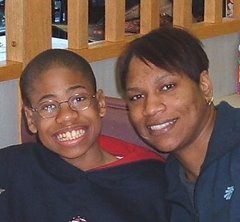By: Lifespan on Apr 10 2006
Siblings' relationships
Siblings of children with chronic illnesses and developmental disabilities are two to three times more likely than their peers to experience psychological adjustment problems. Young children in particular are at high risk for experiencing these kinds of problems. To address this concern, a report published in the December 2005 issue of the Journal of Pediatric Psychology finds that family-based group intervention can help improve the self-confidence and knowledge of young siblings (ages 4 to 7) of children with special needs.
"We found that participating in a group with other young siblings and parents of children with disabilities was both educational, therapeutic, and fun," says lead author Debra Lobato, PhD, with the Bradley Hasbro Children's Research Center (BHCRC) and Brown Medical School.
The authors explain that within their families, well siblings may experience extra caregiver burden, differential treatment, and an imbalance of family resources. Outside their families, siblings may experience limited access to information about the child's condition, negative peer reactions, and disruptions in social activities.
"It's important to address the psychological and emotional needs of this group at an early stage," says Lobato. "Children spend more of their lifetimes with their siblings than they do with their parents. Siblings play a key role in one another's social and emotional development. They often sleep together in the same room, eat at the same table, and go to the same school. Our siblings are often the ones who most easily make us laugh and cry. So, when a child has a chronic illness or disability, brothers and sisters are likely to affect each other in both positive and negative ways."
Full article at: http://www.emaxhealth.com/50/5461.html
For information, resources and practical strategies on autism visit:
www.AutismConcepts.com
www.child-autism-parent-cafe.com
Forget what you haven't heard… Family site shares news, resources, announcements and free or low-cost ways to help us manage day-to-day living with autism.
Crystal Brown

About Me

- Crystal
- AutismConcepts.com and Child-Autism-Parent-Cafe.com share a large collection of useful autism information, resources, and how-to articles written by authors who are touched by autism, offering practical solutions to families. Particularly minority and underserved families and caregivers who may not know what to do or where to go for help.
MJ And Me

Blog Archive
-
▼
2006
(213)
-
▼
April
(20)
- Study: Autism Has High Costs to U.S. Society
- Tutorial, Access To Care For People With Disabilities
- Autism - Worst Welfare Disaster In History
- Treatment involves repeated exercises
- Guardianship News
- Face Reader Bridges Autism Gap
- 20 Parent Tips To A Tantrum-Free Haircut For A Chi...
- Repetitive Self-Injurious Behavior: The Emerging P...
- GRACE (VA) Co-Sponsors Free Program for Autism Awa...
- Help for Siblings of Children with Special Needs
- Brain Scans Help Explain Autistic Traits
- Parents of Autistic Kids March Against Mercury
- Study Denouncing Autism Epidemic Misses the Mark; ...
- Increase Autism Awareness with Build A Bear Workshop
- Siblings of Disabled Have Their Own Troubles
- The Age of Autism: Mercury Ban Opposed
- Insurance and autism
- The Age of Autism: Hot potato on the Hill
- Wrightslaw Special Education Law and Advocacy Trai...
- The alienating 'hello'
-
▼
April
(20)